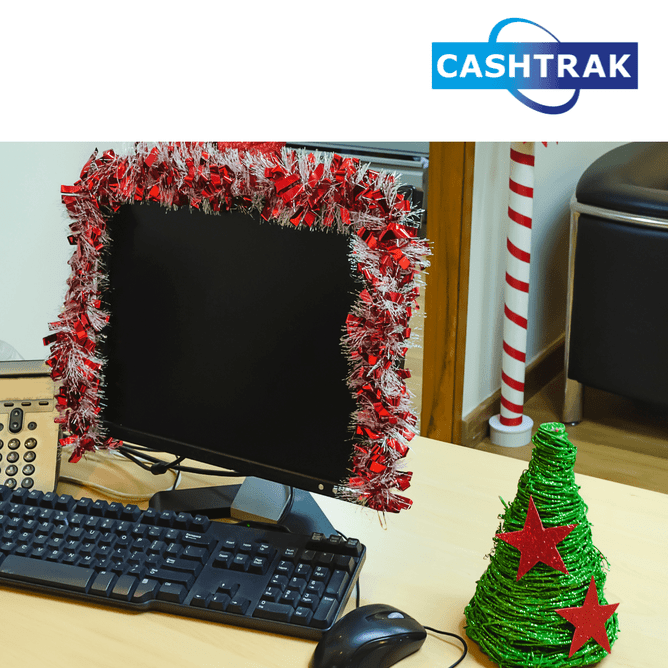The holiday season is a magical time of year, but for business owners, it can also bring questions about what counts as an allowable expense when it comes to the Christmas festivities. Whether you’re planning a team party, sending gifts to clients, or decorating the office, understanding HMRC’s rules can save you money and ensure compliance.
Here’s your complete guide to allowable business expenses this Christmas, brought to you by Cashtrak.
1. Christmas Parties and Staff Entertainment 🎉
Good news for employers: the cost of a Christmas party or similar annual event is usually an allowable expense. Here are the key conditions:
The event must be open to all employees: HMRC requires that the party is inclusive and available to everyone in your team.
Stay within the £150* per head limit: This includes all costs, such as food, drink, entertainment, and VAT. Exceeding this limit will make the entire amount taxable.
It’s for employees, not clients: Parties for clients don’t count as an allowable expense.
💡 Pro Tip: Keep clear records of the event costs, including itemized receipts and a breakdown of attendee numbers.
*2024 allowance
2. Gifts for Clients and Customers 🎁
You can spread festive cheer to clients and customers, but there are strict rules about what is deductible:
Gifts must cost less than £50 per recipient.
They must prominently display your business name (e.g., branded items like mugs or pens).
The gift cannot be food, drink, tobacco, or vouchers.
If your gift doesn’t meet these conditions, it won’t qualify as an allowable expense.
3. Gifts for Employees 🎁
Treating your team is a great way to boost morale—and certain gifts can be tax-deductible under HMRC’s Trivial Benefits Exemption:
Gifts must cost £50 or less per employee.
They cannot be cash or cash vouchers.
The gift must not be a reward for performance or part of their contractual entitlement.
Examples include Christmas hampers, chocolates, or gift cards (as long as they aren’t exchangeable for cash).
4. Office Decorations and Festive Supplies 🎄
Decking the halls of your workplace is an allowable expense! You can claim back the cost of Christmas trees, lights, and decorations for your business premises. These expenses count as part of running the office.
5. Donations and Charitable Giving 🤝
If your business donates to a registered charity over the festive season, these contributions are usually tax-deductible. Make sure to:
Obtain receipts for all donations.
Verify the charity’s registered status with HMRC.
6. Marketing and Seasonal Promotions 📣
Seasonal advertising, promotional materials, and branded Christmas campaigns can all count as allowable business expenses. Whether you’re running a festive sale or sending out Christmas cards to clients, keep these activities focused on business promotion to qualify.
What’s NOT an Allowable Expense Over Christmas?
While there are plenty of ways to claim tax relief during the festive season, certain costs are non-deductible:
Gifts for family members or friends.
Client entertainment (e.g., wining and dining).
Lavish or personal expenses that don’t directly benefit the business.
How We Can Help
Navigating HMRC’s rules on allowable expenses can be tricky, but that’s where we come in. At Cashtrak, we have over 15 years of experience helping businesses like yours maximise deductions while staying compliant.
Let us handle your bookkeeping, payroll, and tax returns so you can focus on celebrating the season—and growing your business in the new year.
📞 Contact us today to learn how we can support you this Christmas and beyond!

